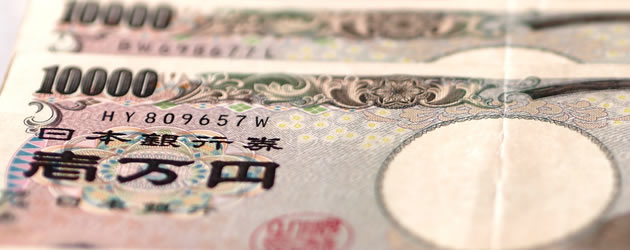
The Japanese Yen (JPY) to Pound Sterling (GBP) exchange rate is on track to make a weekly gain and is edging closer to a one-month high as the Asian currency received support from increased demand for safe haven assets.
Demand for safer assets increased on Friday as concerns grow over signs that the global economy is slowing.
This week the Japanese Yen has strengthened against all but two of its most traded peers as worries over economic strength in Europe and Asia weigh upon market sentiment. The European Central Bank President Mario Draghi warned that the Eurozone’s economy is losing momentum. With poor economic data coming out of Germany, concerns are rising that the region is heading towards a recession.
The Pound weakened on mounting expectations that the UK economy is slowing as weakness in the Eurozone weighs and as traders reduced their bets that upcoming Bank of England policy meeting minutes will show that policy makers remained in favour of leaving interest rates unchanged. Earlier in the month, Deputy Governor of the BoE said that rates should not rise soon due to the uncertainty over the strength of the economy.
Data released on Friday did little to support the Pound despite it showing that the UK’s trade deficit narrowed more than forecast in August as trade with nations outside of Europe picked up.
According to the Office for National Statistics (ONS) the nation’s trade deficit narrowed to £9.10 billion from the preceding months figure of £10.41 billion. Economists had been expecting the trade deficit to narrow to a reading of £9.60 billion.
The data came a day after the Bank of England voted to keep interest rates on hold at 0.5% and to keep the size of its asset purchase program unchanged at £375 billion.
A separate report showed that activity in the UK’s Construction sector fell by 3.9% in August compared with the previous month. The figure is regarded as volatile due to an expected slowdown as a result of the summer holiday period.
The Yen was also on track to make its first weekly advance since August against the US Dollar.
‘People have decided that the reason the Fed might be lower for longer on rates is because the global economy is slowing and equities have dumped on that. The Yen is still the pre-eminent safe-haven currency,’ said Ray Attrill, the head of currency strategy at National Australia Bank Ltd.

